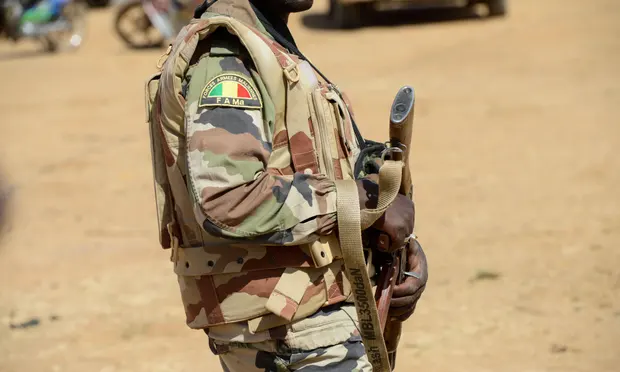Allegations of severe human rights abuses have surfaced in Mali’s northern Kidal region, where Mali’s army and Russian mercenaries from the Wagner group are accused of killing dozens of civilians during a military operation. Civil society organizations and local residents reported the killings occurred between June 20 and 29 in the Abeibara area, highlighting escalating violence following the breakdown of peace agreements with rebel groups by Mali’s ruling junta.
Hamadine Driss Ag Mohamed, speaking on behalf of Abeibara’s village chief, recounted harrowing details to The Associated Press, alleging that Malian soldiers and Wagner fighters executed 46 civilians, including elderly men and shepherds. He described rampant looting of valuables from campsites, exacerbating the humanitarian crisis in the conflict-torn region.

The conflict in Mali’s Sahel region has been marked by the involvement of various armed groups, some linked to al-Qaida and the Islamic State, amid shifting alliances and foreign military interventions. Recent developments have seen the expulsion of French forces and increased reliance on Russian mercenary groups like Wagner by Mali’s junta, despite international concerns over human rights abuses.
In response to the allegations, the Citizen’s Observatory for Monitoring and Defending the Human Rights of the Azawad People, also known as Kal akal, condemned what they termed as “ethnic cleansing” orchestrated by the Wagner group alongside the Malian army. They reported at least 60 civilians killed, with victims allegedly buried in mass graves, underscoring the severity of the situation.
Mali’s military spokesperson, Col. Maj. Souleymane Dembélé, stated that the army had no prior knowledge of the reported killings but acknowledged ongoing military operations across the country. The lack of official confirmation amidst mounting evidence has heightened international scrutiny and calls for accountability.

The conflict in Mali has endured over a decade of instability, compounded by the 2020 military coup that ruptured peace agreements with Tuareg rebel groups. The subsequent military actions against strongholds like Kidal have intensified violence, particularly affecting civilian populations already grappling with humanitarian crises.
As the situation unfolds, global attention remains focused on Mali’s complex security landscape and the humanitarian toll of ongoing conflict, emphasizing the urgent need for diplomatic intervention and international oversight to address human rights abuses and restore stability.
AP



